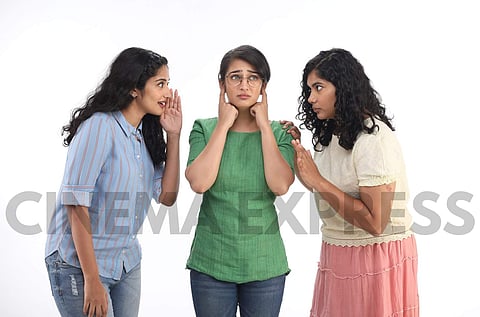Achcham Madam Naanam Payirppu Movie Review: A lacklustre film that means well
Rating:(2 / 5)
In stories that are primarily meant to drive forward a specific point, where and how one constructs the setting is pivotal. Achcham Madam Naanam Payirppu attempts to expose the shackles that bind women, and to this end, director Raja Ramamurthy identifies his setting in an extremely conservative Brahmin household. Pavithra (Akshara Haasan) is a late teen subjected to society’s asphyxiating boundaries. The girl is bogged down and forced to appease everyone—family, friends, everyone.
Director: Raja Ramamurthy
Cast: Akshara Haasan, Usha Uthup, Malgudi Subha, Anjana Jayaprakash, Shalini Vijayakumar
Streaming on: Amazon Prime Video
Raja builds Pavithra's world with specific strokes. The introduction shot is a fish in a round tank. Pavithra, you see, is constantly torn between her cricketer boyfriend who aims to impress her unimpressed father; there’s her music teacher mother (Malgudi Subha) who pushes her hard to meet the big expectations of filling the shoes of her grandmother, a popular Carnatic singer (played by Usha Uthup); and there’s everyone else who tries to control her life. A great running gag is that of a woman, called Naidu aunty (Janaki), who sells pseudo-voice-enhancing products and Pavi's mother seems to trust that product more than her own child. And then, there’s also the neighbour whose brooding stares rattle her.
The film's big conflict emerges when she desires to have pre-marital sex with her boyfriend. Will she take the big step? Here's where Pavi's friends, Rathi (Anjana Jayaprakash) and Jessica (Shalini Vijayakumar), become great additions. They become like a demon and an angel, from whichever perspective one chooses to see, throwing conflicting ideas into Pavi's mind.
These characters and how the narrative progress also makes Pavithra a flawed character. For instance, at one point, Pavithra misdirects her anger on Rathi, shames her, and calls her a selfish woman with no dignity. Even if the film justifies Pavi's action as just momentary anger, the fact that she chose to say these without any remorse or hesitation at that point shows how deep her conditioning is.
The problem with this film comes much earlier when the film’s attempt to show the outside world ends up demonising that too. A man stalks Pavithra whenever she takes her dog out. Yes, the intention is valid, but on occasion, there’s the tendency to milk it for humour. The said stalker walks around with a black mongrel he’s named Black Panther, while Pavi's dog, of course, is a light-skinned labrador named Pixie. Make of this what you will.
Achcham Madam Naanam Payirppu cares enough about its main objective, but the screenplay fails to create continuous engagement. Barring one scene involving Pavithra and her grandmother, almost nothing else makes a lasting impression. Having said that, kudos to the all-women technical crew who make the viewing a smooth experience. For example, the aspect ratio of the film is like that of a strip for most of the initial portions of the film to depict how constrained Pavi's life is. The frame eventually grows bigger when she finds an opportunity to break her shackles and go carefree. Shreya Dev Dube's cinematography and Susha's music scores are real strengths. This 80-minute film isn’t indulgent, even if it doesn’t blow your mind. It may not always engage, but it still speaks of an important subject that is thought taboo.

